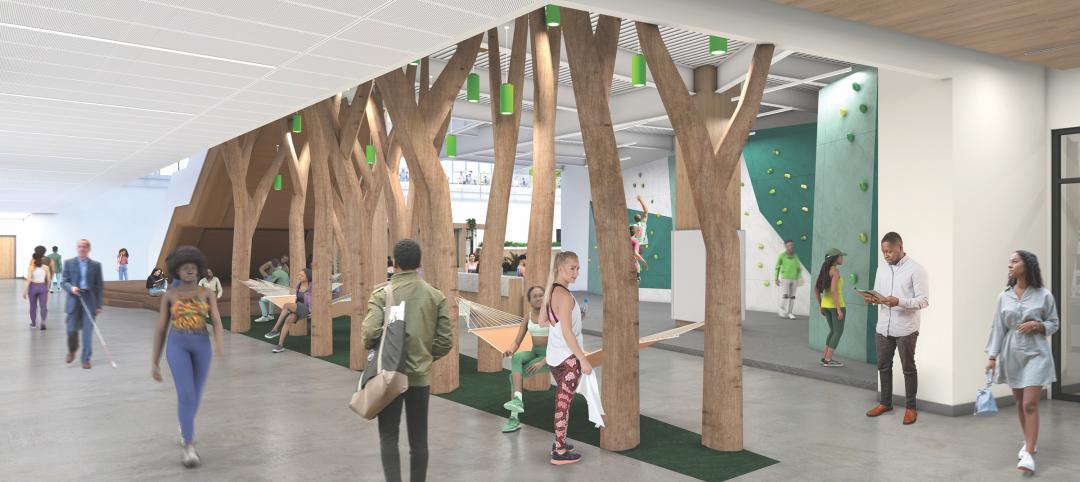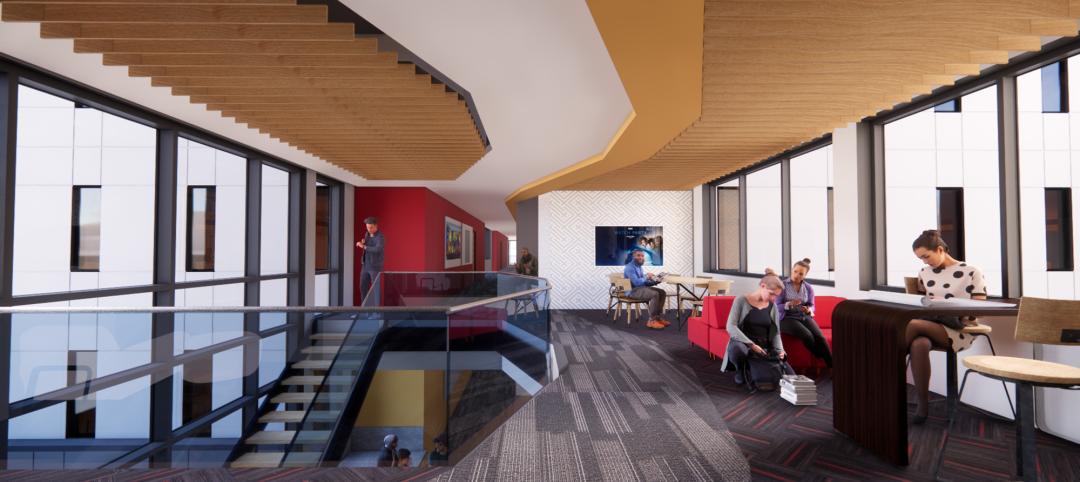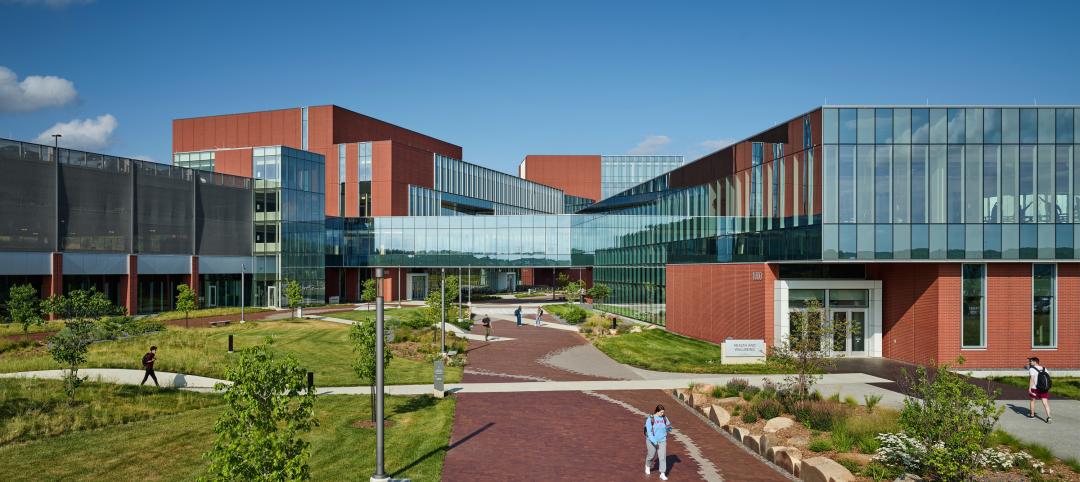The Board of Directors and the Strategic Council of the American Institute of Architects (AIA) are honoring Edward Mazria, FAIA, with the 2021 Gold Medal.
The Gold Medal honors an individual whose significant body of work has had a lasting influence on the theory and practice of architecture. Mazria is being recognized for his work sounding the alarm on climate change and motivating the profession to take action.
A native New Yorker and graduate of the Pratt Institute, Mazria received his Bachelor of Architecture degree from the school and played on its basketball team, garnering attention from the New York Knicks. After being selected in the 11th round of the 1962 NBA draft, Mazria opted to serve in the Peace Corps in Peru, where he uncovered the notion that responsible architecture is the key to both social and environmental improvement. When he returned stateside to work in the office of the 2007 Gold Medal winner, Edward Larrabee Barnes, FAIA, Mazria’s outlook was further defined by his mentor’s understated and place-based approach to architecture.
Teaching opportunities and an advanced degree called Mazria to New Mexico in 1973, where the state’s natural environment influenced the future of his career. Upon completion of his master’s degree, he accepted a teaching position at the University of Oregon to focus on solar energy research. The capstone of that work was the publication of The Passive Solar Energy Book in 1979. Still heavily referenced to this day, the book has been translated into five languages and global sales have topped one million copies. With his research complete, Mazria returned to New Mexico to test his theories in a slate of iconic passive solar and highly contextual buildings, such as the Stockebrand Residence, the Museum of Indian Arts and Culture, and Georgia O’Keefe’s estate, Sol y Sambra.
Supported by his groundbreaking portfolio designed to urge architects away from fossil fuels, Mazria helped found the AIA’s Committee on the Environment (COTE) in the 1990s. In 2002 his firm began conducting pro-bono work under the name Architecture 2030. Just a few years later, it became a fully-fledged nonprofit organization dedicated to altering the course of climate change.
Supported by Mazria’s decades of research, teaching, writing, and practice, Architecture 2030’s influence has shaped some of the world’s actions on climate change, including the United Nations’ 21st Conference on the Parties that followed the adoption of The Paris Agreement. There, Mazria presented his organization’s research on the greenhouse gas footprint produced by buildings created through standard business practices and principles. He delivered hopeful data and best practices while outlining Architecture 2030’s comprehensive Roadmap to Zero Emissions for the building industry.
Mazria’s life’s work has long influenced the AIA’s stances on sustainability and environmental stewardship. Since adopting the Architecture 2030 Challenge in 2006, AIA’s collaborations with the nonprofit have gained even more momentum, sparking changes to the AIA Code of Ethics and Professional Conduct.
As one of the world’s foremost experts on the built environment’s role in both causing and curing climate change, Mazria addresses the global threat as a design problem. Facing countless challenges, his leadership and positioning of architects as a critical resource in creating a healthy, just, and carbon-positive future.
Learn more about Mazria’s selection as the 2021 AIA Gold Medal recipient on AIA’s website.
Related Stories
Construction Costs | Oct 16, 2024
Construction Crane Index: Most major markets’ crane counts increase or hold steady in third quarter
Rider Levett Bucknall’s (RLB’s) latest Crane Index and Quarterly Cost Report shows continued decreasing cost inflation and crane counts increasing or holding steady in 10 of the 14 major markets it surveyed. The national average increase in construction costs was 1.07%, the lowest it’s been in the last three years.
AEC Tech | Oct 16, 2024
How AI can augment the design visualization process
Blog author Tim Beecken, AIA, uses the design of an airport as a case-study for AI’s potential in design visualizations.
University Buildings | Oct 15, 2024
Recreation and wellness are bedfellows in new campus student centers
Student demands for amenities and services that address their emotional and mental wellbeing are impacting new development on college campuses that has led to recreation centers with wellness portfolios.
Higher Education | Oct 14, 2024
Higher education design for the first-gen college student
In this Design Collaborative blog, Yogen Solanki, Assoc. AIA, shares how architecture and design can help higher education institutions address some of the challenges faced by first-generation students.
Performing Arts Centers | Oct 10, 2024
Studio Gang's performing arts center for Hudson Valley Shakespeare breaks ground
A new permanent home for Hudson Valley Shakespeare, a professional non-profit theater company, recently broke ground in Garrison, N.Y. The Samuel H. Scripps Theater Center includes a 14,850 sf performance venue that will serve as a permanent home for the theater company known for its sweeping open-air productions of classics and new works.
Sustainable Design and Construction | Oct 10, 2024
Northglenn, a Denver suburb, opens a net zero, all-electric city hall with a mass timber structure
Northglenn, Colo., a Denver suburb, has opened the new Northglenn City Hall—a net zero, fully electric building with a mass timber structure. The 32,600-sf, $33.7 million building houses 60 city staffers. Designed by Anderson Mason Dale Architects, Northglenn City Hall is set to become the first municipal building in Colorado, and one of the first in the country, to achieve the Core certification: a green building rating system overseen by the International Living Future Institute.
3D Printing | Oct 9, 2024
3D-printed construction milestones take shape in Tennessee and Texas
Two notable 3D-printed projects mark milestones in the new construction technique of “printing” structures with specialized concrete. In Athens, Tennessee, Walmart hired Alquist 3D to build a 20-foot-high store expansion, one of the largest freestanding 3D-printed commercial concrete structures in the U.S. In Marfa, Texas, the world’s first 3D-printed hotel is under construction at an existing hotel and campground site.
University Buildings | Oct 9, 2024
Des Moines University Medicine and Health Sciences opens a new 88-acre campus
Des Moines University Medicine and Health Sciences has opened a new campus spanning 88 acres, over three times larger than its previous location. Designed by RDG Planning & Design and built by Turner Construction, the $260 million campus features technology-rich, flexible educational spaces that promote innovative teaching methods, expand research activity, and enhance clinical services. The campus includes four buildings connected with elevated pathways and totaling 382,000 sf.
Student Housing | Oct 9, 2024
University of Maryland begins work on $148 million graduate student housing development
The University of Maryland, in partnership with Campus Apartments and Mosaic Development Partners, has broken ground on a $148.75 million graduate student housing project on the university’s flagship College Park campus. The project will add 741 beds in 465 fully furnished apartments.
Healthcare Facilities | Oct 9, 2024
How healthcare operations inform design
Amanda Fisher, Communications Specialist, shares how BWBR's personalized approach and specialized experience can make a meaningful impact to healthcare facilities.

















